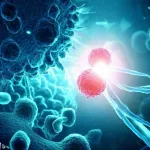(Press-News.org) Simple home workouts using exercise apps can effectively reduce depressive symptoms in healthcare workers and could be a major tool to combat the global mental health crisis in the sector, says new University of British Columbia research.
The study, published today in JAMA Psychiatry, divided participants into either a waitlisted control group or an exercise group who were given free access to a suite of home exercise apps called DownDog, that included yoga, cardio and strength training. They were asked to aim for at least 80 minutes of moderate-intensity exercise per week over 12 weeks.
“The exercise group reported significantly lower levels of depressive symptoms compared to the control group as the study progressed,” said first author Dr. Vincent Gosselin-Boucher, a postdoctoral fellow at UBC’s school of kinesiology. “The majority of the participants in the study started very high on the scale for depressive symptoms compared to the general population so the changes were actually quite amazing to see.”
The positive effects were most pronounced among participants who completed an average of at least 80 minutes of exercise per week.
In addition to depressive symptoms, the researchers measured burnout symptoms and sick days over the two-week period prior to the beginning of their participation in the study, and every two weeks during the trial, while the exercise apps tracked participants’ workouts.
Exercise improved two measured facets of burnout, namely cynicism and emotional exhaustion. The exercise group also reported fewer sick days than the control group.
Using physical activity to boost mental health
While previous research has shown that exercise can improve depressive symptoms, researchers said behavioural approaches such as exercise were missing in the mental health initiatives offered by healthcare institutions around the world to address covid-19’s toll on their staff’s mental health.
“Our study provides the first evidence that working out at home using exercise apps, even with limited equipment, can significantly enhance the mental health of healthcare workers,” said lead author Dr. Eli Puterman, an associate professor at UBC’s school of kinesiology and Canada Research Chair in Physical Activity and Health.
“The past three years have been incredibly difficult for healthcare workers. Offering accessible, easy ways to exercise could be a great tool for employers to support their staff’s mental well-being, in addition to the institutional, provincial, and federal measures currently being undertaken to reduce healthcare workers’ burnout, sick leave and resignations.”
The study was conducted in collaboration with Providence Health Care and recruited participants across acute and long-term care hospitals in Vancouver, B.C. Most participants were women who worked as nurses.
For study co-investigator Agnes Black, director of Health Services and Clinical Research and Knowledge Translation at Providence Health Care, the study offers a welcome, preventative approach to mental health care.
“We recognize the incredible stress healthcare workers have endured during the pandemic and amid ongoing staff shortages. This is a really innovative and low-cost way to have a positive impact by putting our money upstream, before people are in crisis, are burnt out and have to call in sick. It’s a way to say, ‘We want to make it super easy for you to fit exercise into your day so you can stay physically and mentally healthy as you continue your vital work.’”
Making working out a habit
The study found that a major challenge was getting participants to stick to the program: between week two and week 12, adherence to the recommended 80 minutes of exercise per week dropped to 23 per cent of participants, from 54 per cent.
In the future, the researchers plan to explore whether providing motivational support such as fitness coaches can nurture the exercise habit.
“We also hope to do longer-term trials to focus on the broader mental, physical and economic impacts of this type of intervention,” said Dr. Puterman.
He encourages healthcare institutions to think about other ways they can support healthcare workers to be more physically active, such as offering free gym memberships, walk breaks at work, or staff exercise rooms within hospitals.
“While our findings underscore the potential of low-barrier interventions like offering exercise apps, we also have to figure out and address factors that prevent healthcare workers from exercising. Whether these are work-related stressors or other factors, we need to support healthcare workers on multiple fronts.”
Interview languages: English (Puterman, Gosselin-Boucher, Black), French (Gosselin-Boucher)
END
Exercise apps a good prescription to boost healthcare workers' mental health
2023-08-09
ELSE PRESS RELEASES FROM THIS DATE:
Then vs. now: Did the Horn of Africa reach a drought tipping point 11,700 years ago?
2023-08-09
New research suggests that the Horn of Africa is likely to become even drier, not wetter in the future as predicted by most climate models.
‘Wet gets wetter, dry gets drier’. That mantra has been used for decennia to predict how global warming will affect the hydrological cycle in different world regions. But if climate models predict that much of tropical Africa will enjoy a future with wetter weather, then why does it keep getting drier in certain parts of the African tropics, like the Horn of Africa? An international team of researchers ...
Resilient biomedical scientists’ careers took a hit during pandemic
2023-08-09
First study to measure resilience in biomedical scientists during the pandemic
Sixty-one percent of study participants said they experienced a setback during pandemic
‘You can be as resilient as you want, but certain structural factors can hinder your professional advancement’
CHICAGO --- When COVID-19 presented the world with the greatest health challenge in modern history, it was biomedical scientists who stepped up to develop diagnostic testing and vaccines to slow the spread of the disease.
But how did these in-demand scientists fare psychologically and in their careers amid pandemic pressures such as juggling ...
Engineered probiotic developed to treat multiple sclerosis
2023-08-09
Brigham researchers are working on a new approach to target autoimmunity in the brain leverages designer bacteria to make treatment safer and more effective
Researchers from Brigham and Women’s Hospital, a founding member of the Mass General Brigham healthcare system, have designed a probiotic to suppress autoimmunity in the brain, which occurs when the immune system attacks the cells of the central nervous system. Autoimmunity in the brain is at the core of several diseases, including multiple sclerosis. In a new study, researchers demonstrated the treatment’s potential using preclinical models of these diseases, finding that the technique offered a more precise ...
There and back again: how neurons make room for growth in a developing organ
2023-08-09
To function properly, organs require a precise number of cells and a functional architecture, which are established during embryogenesis. Embryos are proficient multitaskers; they grow, and acquire shape and functional architecture all at once. Despite a lot of research on embryo development, scientists do not yetfully grasp how embryos orchestrate all these different tasks in space and time to ensure the formation of healthy organs. This was ...
Oldest extant plant has adapted to extremes and is threatened by climate change
2023-08-09
The rare moss Takakia has adapted over millions of years to a life at high altitudes. An international research team led by Prof. Dr. Ralf Reski from the University of Freiburg and Prof. Dr. Yikun He from the Capital Normal University / China has now discovered exactly how it has developed the ability to survive frost and life-threatening high UV radiation. In the renowned journal Cell, they describe the genetic traits that protect the moss from extreme environmental conditions. At the same time, they document how climate change greatly altered the natural habitat of this highly specialized species within just a few years.
The ...
Drinking alcohol not likely to increase risk of a breast cancer recurrence
2023-08-09
A Kaiser Permanente study provides new information that may help oncologists answer one of the most common questions they hear from breast cancer survivors: Is it safe to drink alcohol?
The new study, published August 9 in Cancer, is the largest prospective study to look at short-term alcohol use after breast cancer. The findings suggest drinking alcohol is not associated with an increased risk of breast cancer recurrence or dying from the disease.
“We know that women who drink alcohol are at increased ...
New machine-learning method may aid personalized cancer therapy
2023-08-09
FOR IMMEDIATE RELEASE
Deep-learning technology developed by a team of Johns Hopkins engineers and cancer researchers can accurately predict cancer-related protein fragments that may trigger an immune system response. If validated in clinical trials, the technology could help scientists overcome a major hurdle to developing personalized immunotherapies and vaccines.
In a study published July 20 in the journal Nature Machine Intelligence, investigators from Johns Hopkins Biomedical Engineering, the Johns Hopkins Institute for Computational Medicine, the Johns Hopkins Kimmel Cancer Center and the Bloomberg~Kimmel Institute for Cancer Immunotherapy show that ...
Childhood cancer: "New" immune system responds better to therapy
2023-08-09
(Vienna, 9.8.2023) Scientists at St. Anna Children's Cancer Research Institute and the Eberhard Karls University of Tübingen have shown that immunotherapy after stem cell transplantation effectively combats certain nerve tumors in children. Crucially, stem cells from a parent provide children with a new immune system that responds much better to immunotherapies. These results of an early clinical trial were published in the prestigious Journal of Clinical Oncology.
Childhood tumors of the nervous system, known as neuroblastomas, are associated with an unfavorable prognosis ...
2024 HFSP Nakasone Award nominations are open
2023-08-09
The Human Frontier Science Program (HFSP) has published the new call for the 2024 HFSP Nakasone Award. Until September 30th, the global scientific community is invited to submit their nominations for this prestigious award.
The HFSP Nakasone Award recognizes groundbreaking contributions and breakthrough discoveries in the life sciences. The award celebrates exceptional achievements in scientific excellence, particularly those that have propelled the boundaries of biological knowledge forward.
In its 13th ...
CAREER Award: Fixing AI’s blind spot in image analysis
2023-08-09
For all the astonishing things artificial intelligence can do, it has a particular blind spot that one University of Virginia researcher seeks to remedy.
It can’t recognize all shapes.
“Current machine-learning models lack the capability to analyze and quantify the shape of objects presented in images with complex structures and large variations, especially in the context of medical imaging,” said Miaomiao Zhang, an assistant professor in the UVA School of Engineering and Applied Science.
The models are biased toward “seeing” image textures and have limited ability ...





